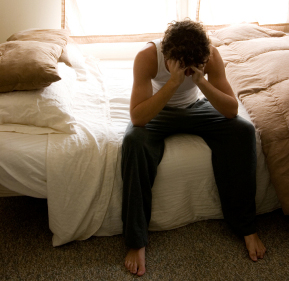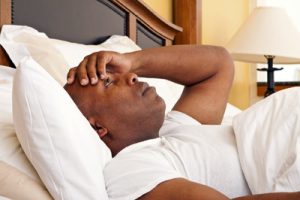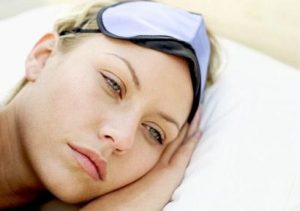Insomnia is the inability to get the amount of sleep you need to wake up feeling rested and refreshed. People with insomnia can feel dissatisfied with their sleep and usually experience one or more of the following: fatigue, low energy, difficulty concentrating, mood disturbances, and decreased performance in work or at school. The symptoms persist for at least a month and do not occur along with another sleep disorder, mental disorder, medical condition or substance use
Here are some quick and interesting facts about insomnia:
There isn’t one single cause for insomnia; stress, physical and mental illness, living situations, family history, sleeping conditions, shift work, diet and exercise can all play a part in insomnia.
Insomnia affects women more than men around 40% of women suffer from insomnia at some point as opposed to 30% of men. This is largely due to the hormone changes women experience throughout their lives
The human body cannot survive without sleep. People who do not sleep for several days experience hallucinations, blurred vision, slurred speech and paranoia.
People vary in the amount of sleep they need. Adults around 7-8 hours every night, teenagers around 9, and babies as much as 16. Insomnia is not defined by how many hours sleep you do no or do not get, but the problems experienced in daytime due to lack of sleep – such as drowsiness, inability to concentrate, headaches and irritability
How long does insomnia last?
Insomnia may be characterized based on its duration.
Acute insomnia is brief and often happens because of life circumstances (for example, when you can’t fall asleep the night before an exam or after receiving stressful or bad news). Many people may have experienced this type of passing sleep disruption, and it tends to resolve without any treatment
Chronic insomnia is disrupted sleep that occurs at least three nights per week and lasts at least three months. Chronic insomnia disorders can have many causes. Changes in the environment, unhealthy sleep habits, shift work, other clinical disorders, and certain medications could lead to a long-term pattern of insufficient sleep. People with chronic insomnia may benefit from some form of treatment to help them get back to healthy sleep patterns. Chronic insomnia can be comorbid, meaning it is linked to another medical or psychiatric issue, although sometimes it’s difficult to understand this cause and effect relationship. Babies and young children deprived of sleep growing up because of medical conditions, poor home life, and other factors are most likely to develop chronic insomnia growing up
People with insomnia tend to have difficulty falling asleep (onset), staying asleep ( maintenance), and/or they wake up too early in the morning. Treatment for insomnia can include behavioral, psychological, medical components or some combination thereof. You may have to discuss with your doctor about your particular situation and history of insomnia, as well as its causes, to decide on the best treatment plan.
Some people experience insomnia as part of bereavement. Taking prescription sleeping pills can actually disrupt the grieving process.
More often than not, insomnia is actually a symptom of some other, underlying medical condition.
Up to 80% of totally blind people experience insomnia. As the brain uses clues from light to tell our body when to sleep, people who are totally blind cannot perceive light often struggle to regulate their sleep cycles.
Insomnia most commonly occurs in elderly people, aged 60 and over. At this age, lifestyles changes, lack of exercise, deteriorating health, and increased sensitivity to outside noise and temperature all contribute to insomnia.
Dealing with the sleepless nights.
Meditation: It’s a tough sell, we know, but regular meditation may be a powerful tool for some insomniacs.
Smell the roses: This can be done on its own or with aromatherapy oils. Just sprinkle four or five drops on a bathroom tissue and hold it to your nose, taking 10 to 15 deep breaths. if awake you’re stewing about work, anxious about money, or just plain feeling overwhelmed, try spikenard, vetiver, frankincense, myrrh and clary sage. These oils will slow you down to promote a heavier, more restorative sleep.
Get regular exercise: it’s not a quick fix. It takes several months to feel the full effects. Aim for 30 minutes or more of activity on most days—but not too close to bedtime.
Culled from livescience












